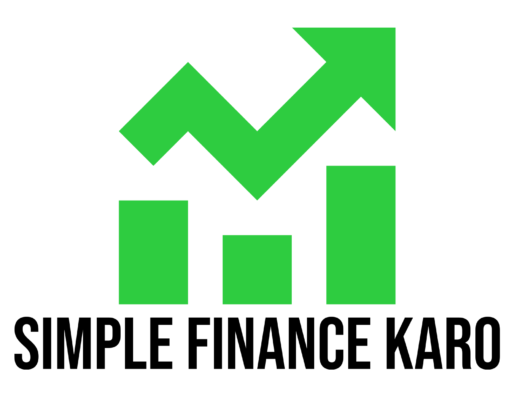WHAT IS ONLINE BANKING;
Online banking made easy! it refers to the use of the internet to conduct various banking activities and financial transactions without the need to visit a physical bank branch. It provides individuals and businesses with the convenience of managing their financial accounts, conducting transactions, and accessing banking services through secure websites or mobile applications.Overuse of student loans can result in enormous and burdensome debt if there is no clear repayment plan or job route. Unwanted debt also includes debt from speculative or high-risk investments, recurring overdraft fees, and unforeseen medical costs. It takes careful money management, smart borrowing, and a dedication to upholding a stable and positive financial outlook to identify and prevent bad debt. Through prioritising financial literacy and making well-informed borrowing decisions, people can reduce the risks associated with nonperforming debt and strive towards long-term sustainability
MAIN SERVICES OFFERED BY ONLINE BANKING SYSTEM ARE-

Account Information
- Access to account balances
- Reviewing transaction history
- Checking statements and account details.
Fund Transfers:
- Transferring money between accounts, both within the same bank and to accounts at other financial institutions.
- Setting up recurring transfers or scheduled payments.
Bill Payments:
- Paying bills online, including utilities, credit cards, loans, and other regular payments.
- Setting up automatic payments for recurring bills.
Mobile Banking:
- Using mobile apps on tablets and smartphones to access financial services.
- Carrying out financial operations, such as mobile cheque deposits and fund transfers, while on the go.
Online Statements:
- Using electronic documents and assertions rather to conventional paper statements.
- Downloading statements for documentation.
Investment Management:
- Keeping an eye on and overseeing investment portfolios.
- Online purchasing and selling of bonds, stocks, and other securities.
GAINS OF ONLINE BANKING ARE-

Online banking provides numerous gains for individuals and businesses.The emergence of online banking has brought about numerous benefits and transformed the conventional banking encounter for people. Possibly the most noteworthy benefit is the unmatched convenience it provides. From any location with internet access, users can check balances, access their accounts, and perform a variety of financial operations at any time. Another major advantage of internet transactions is their speed, which allows for real-time account management, bill payment, and financial transfers.
Practicality:
- 24/7 Access: Online banking gives customers flexibility outside of regular business hours by enabling them to view their accounts and complete transactions whenever they choose.
- Location Independence: By having an internet connection, users can handle their money from any location, negating the need to physically visit bank branches.
Time Savings:
- Fast Transactions: Compared to traditional methods, online banking offers faster and more efficient ways to perform tasks including financial transfers, bill payments, and account maintenance.
- Automated Services: To make financial duties easier, a lot of online banking services have automated functionality for recurring transactions.
Cost Savings:
- Decreased prices: Because online banking eliminates the need for physical infrastructure and human processes, it frequently has lower prices than traditional banking services.
- Paperless Transactions: Online banking helps save money and protects the environment by eliminating the need for print statements and other tangible documentation.
Security Measures:
- Encryption and Authentication: Online banking platforms use robust encryption technologies and multi-factor authentication methods to ensure the security of financial transactions and account information.
- Transaction Alerts: Users can set up alerts for account activities, receiving notifications for transactions or account changes, helping them detect and address potential fraud promptly.
LOSSES OF ONLINE BANKING-
While online banking offers many advantages, it also comes with certain losses and risks. It’s important for users to be aware of these potential drawbacks:Security concerns in online banking loom large as the digital landscape exposes users to various cybersecurity threats. Since the digital world exposes users to a variety of cybersecurity dangers, security problems in online banking are significant. A user’s identity may be stolen and sensitive financial information may be compromised by phishing attempts, malware, and hacking. All of these actions carry substantial dangers. Login difficulties to online banking services can be caused by technical problems, such as system failures or bad internet connectivity. One major downside is that there are no in-person interactions.
Security Concerns:
- Cybersecurity Threats: Online banking is susceptible to cybersecurity threats such as phishing, malware, and hacking attempts, which can compromise sensitive financial information.
- Identity Theft: Unauthorized access to personal details may lead to identity theft, with fraudsters using the information for malicious purposes.
Technical Issues:
- System Downtime: Technical hiccups, server outages, or maintenance downtime can cause online banking systems to lose access to some features.
- Connectivity Problems: Users may face difficulties accessing online banking services during periods of poor internet connectivity.
Limited Personal Interaction:
- Lack of Personal Assistance: Online banking lacks the face-to-face interactions available in traditional banking, which may be a disadvantage for individuals who prefer personalized assistance or have complex financial needs.
Fraud Risks:
- Phishing Scams: Users may be targeted by phishing scams, where attackers attempt to trick individuals into providing sensitive information by posing as a trustworthy entity.
- Unauthorized Transactions: In the event of account compromise, unauthorized transactions may occur, and the recovery process can be time-consuming.
Dependency on Technology:
- Technological Dependencies: Online banking relies heavily on technology, and any disruptions, technical failures, or cyberattacks may hinder users’ ability to manage their finances.
Limited Cash Transactions:
- Cash Withdrawals: Online banking may have limitations when it comes to withdrawing or depositing large amounts of cash, which could be a disadvantage for those who rely heavily on cash transactions.

